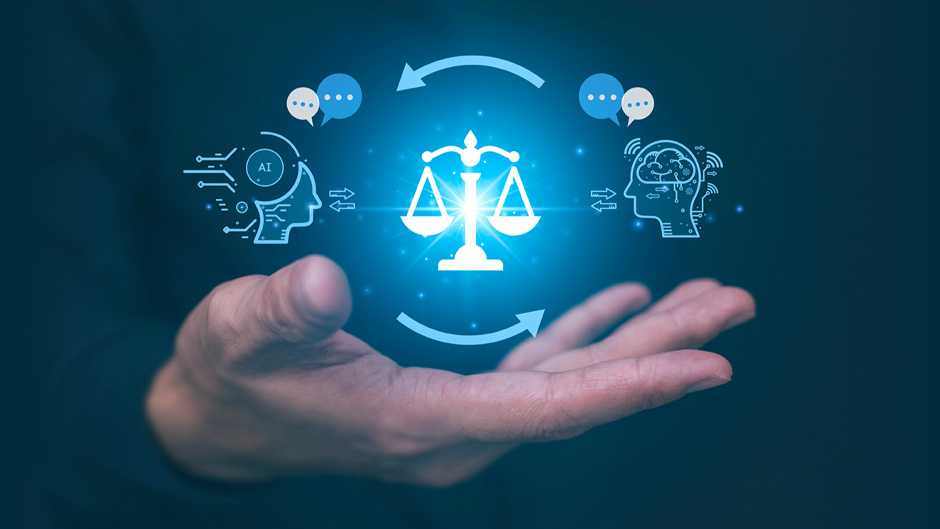Paul Pavlou, who was named dean of the University of Miami Patti and Allan Herbert Business School in July, encourages a tandem approach to the study and effective use of AI, one that explores the technology’s benefits and potential while simultaneously safeguarding for its ethical and responsible use.
“AI is just another—albeit extremely powerful—technology that can be used positively or negatively,” Pavlou said of artificial intelligence. “Whoever uses it thinks that it’s positive, even with weaponry. You use technology to advance your agenda, and people can judge whether it is good or bad.
“At Miami Herbert, we teach a lot about the ethics of AI—the explainability and the ability to control who is responsible for the missions about the technology. We focus on the proper ethics because as AI becomes more and more powerful, we have to be even more responsible and accountable for its power,” he said.
Yet Pavlou suggested that the concern for responsibility should not impede exploring AI’s potential.
“Ethics can be very technical and sometimes viewed as a highly philosophical discussion, useful but not very practical,” he said. “If you start with ‘be careful, don’t touch,’ this approach can detract people from learning and knowing how to use it. So it’s important to start with understanding the benefits and not be overly cautious or fearful.”
Striving for that balance is consistent with the dean’s approach to technology in general.
“Every technology—and we can go back in history—can certainly be viewed as bad,” he noted. “The internet, for example, started with that hype, and it certainly has been used for bad, yet we cannot deny that it has had many positive benefits—the ability to help us communicate, interact, and socialize. It has been very useful.”
Pavlou is a proponent of “AI for all, AI everywhere, and the democratization of AI.”
“Everyone, not just technical people, should be learning how to effectively use AI,” he said. “I really believe in the democratization of AI—for people across the board to be using it. AI will affect the future of work, and it’s pretty clear that it will do more of the human work, replacing jobs—though not eviscerating jobs—will happen as well.”
Pavlou suggested that workers who use AI will become more effective, especially as jobs are changing, and replace those who do not. For example, writers who use AI can be more effective, more efficient, and quicker at doing their work, he said.
“And it’s the same thing for almost all professions,” he added. “If I use the technology, I can do my job better, be more productive, and will replace those that refuse to use it. That should be the message going forward—that AI should be for all. It’s here to stay, and if we use it effectively, we’ll be better off both individually, institutionally, and even societally.”
Yet these changes will not happen overnight, the dean emphasized. He noted that technology generally creates more jobs and, even as AI changes the labor market, the new technology will create more jobs than ever before.
He pointed to agriculture and manufacturing as examples of how technology has shifted industries.
“Basically, machines do most of the very important job of creating food for all of us. Percentagewise, and compared to a hundred years ago, very few people actually work in agriculture, yet they produce food for eight billion people compared to the half a billion when there was no machinery in agriculture,” said Pavlou, adding that the technologies alleviate the need for people to do the more mundane and dangerous work.
The bigger question to be answered, he said, is how to upskill people to get them trained for the new emerging professions.
In recent months, Pavlou has been overseeing the development of a five-year strategic plan, identifying key alumni, students, industry partners, as well as key stakeholders in the South Florida community.
“I’m a big proponent of what we can do together with other schools at the University, and we’re looking at how we can work with the emerging major industries in the area and provide them with the talent they’re looking for,” said Pavlou. “We’re developing a collective vision and are looking to do something bold and exciting.”

